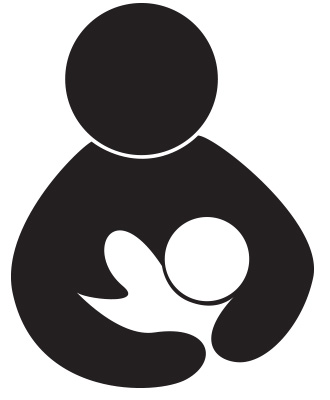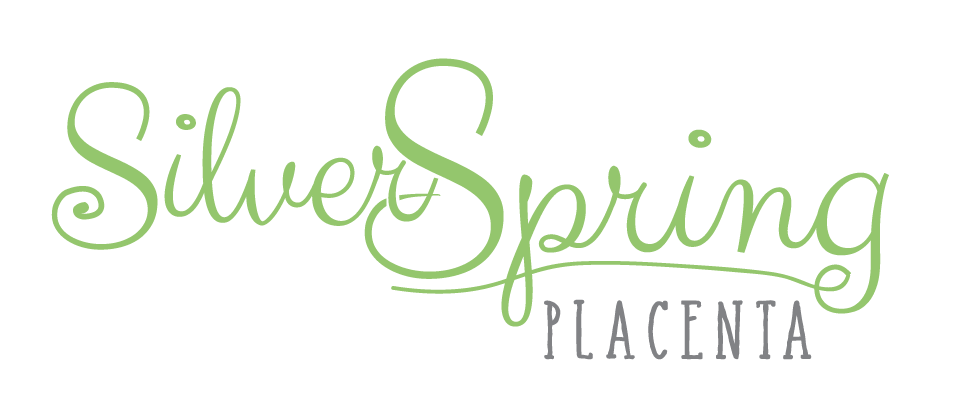How much do YOU know about Placenta Encapsulation?
Common questions and objections to placentophagy
A lot of people wonder about the process and safety of placenta encapsulation.
Here are answers to some common questions about placenta encapsulation safety, as well as a few common objections.
Isn’t that just…gross?
The idea of eating raw placenta is off-putting to most people. But when you encapsulate your placenta it is thoroughly dehydrated, then pulverized into a fine powder which is then placed into capsules. You take it like you would a vitamin! You never even have to see the raw placenta if that type of thing is not your cup of tea.


Placenta encapsulation can spread disease.
A professional placenta encapsulation specialist (that’s me!) is trained not only in placenta preparation, but also in OSHA Blood Borne Pathogens standards and food safety. They follow strict safety protocols set out for them in their certifying organization. They take universal precautions to prevent the spread of disease, and sanitize equipment and workspaces thoroughly. Your health and safety are ALWAYS the number one priority!
I’m a vegan! I can’t eat my placenta.
Good news! Your placenta is the product of LIFE, not death. Nothing had to die to create it – in fact it is deeply and irrevocably associated with birth and regeneration. The placenta has been called “the only vegan meat”! Bonus, consuming your placenta is good for the environment – most placentas born in a hospital are incinerated or disposed of with millions of other tons of medical waste.
Animals only do it to keep their babies safe.
While this sounds like a good theory, it has actually been dismissed by a number of researchers. Why? Well, according to one prominent researcher, the “cleaning up the nest to hide the birth from predators” theory only describes a small subset of mammals – and consuming the placenta after birth is an almost universal mammalian phenomenon. It must be conveying benefits! It is actually easier to take a newborn pup away from a mama rat than it is to wrest the placenta out of her paws! So that “good theory” doesn’t actually stand up to much scrutiny.
Isn’t it full of toxins?
The placenta is a facilitator organ – it facilitates the exchange of gases and nutrients from your blood stream to the baby’s. While the placenta prevents some toxins and other gunk from getting to baby, it is not stored in the placenta. Any junk (toxins, fetal waste) that doesn’t belong in the baby – or in YOU for that matter – gets sent along back into your system to be processed and disposed of via your kidneys and liver. So no, it is not full of toxins. It is full of an incredible array of nutrients and hormones that are just SITTING there, waiting for you use to have a healthier, happier postpartum period.

How does the process work?
We’ve already established that a professional encapsulator follows strict safety protocols and sanitizes like life depends on it (which, you know, it could). This safety standards hold up WHEREVER you choose to have your placenta encapsulated. Most providers encapsulate in a workspace dedicated to placenta work or in the client’s own kitchen. Your placenta is then rinsed thoroughly and the cord is removed. If you’ve chosen the raw method, after the rinse the membranes are removed, the placenta is sliced and placed in the dehydrator and left drying for 18-24 hours. If you chose to have your placenta steamed according to Tradition Chinese Medicine, that happens after the rinse. The next day, your specialist will grind the dried placenta into a very fine powder, put it into capsules, and present them to you, the proud mama, for improved postpartum health, milk supply, energy, and more. Enjoy!
Can I encapsulate if I get an epidural?
Or pitocin? Or a c-section? Absolutely! Both epidural anesthesia and pitocin break down and leave the system very quickly and will have no noticeable effect on your capsules. Just make sure that the people helping you bring your baby earthside know you want to keep your placenta – especially if you are having a c-section!


How do I store my placenta?
Super easy! Just double zip lock bag you placenta and put it on ice! Make it even easier by bring a small cooler with you to your birth location.
I’m GBS+. Can I still encapsulate?
The short answer is “yup!” The slightly longer answer is the Group Beta Strep (GBS) is one of the many types of bacteria that live in the digestive and reproductive tract of humans. It is generally harmless to the carrier (you). While there is a small chance that it can cause an infection in your baby at birth, it lives peacefully in your system already. Consuming any that might survive the high temperatures of the dehydration process is not harmful in any way.


How can it help with breastfeeding?
There are hormones in the placenta that can help stimulate your milk supply. Many women who have had low supply issues in the past find that placenta pills prevent the problem with subsequent births.
Sources:American College of Obstetrics and Gynecology; Placenta Benefits.info; Enhancement of Opioid-Mediated Analgesia: A Solution to the Enigma of Placentophagy; Kristal, et.al.; Placenta as a Lactagogon; Soykova-Pachnerova, et.al.; Uncovering the Truth About Bacteria and Heavy Metals in the Placenta
Are you looking for
Placenta Encapsulation in Silver Spring?
Silver Spring Placenta offers safe, reliable, in-home placenta encapsulation services all throughout the DC Metro Area. I am an independent, DONA certified birth doula as well as an experienced placenta arts specialist certified by The Association of Placenta Preparation Arts, serving all areas of the Greater Metro DC Area. Preparing prenatally for the changes that your life and body are about to make is essential for healing, rejuvenation, and energy postpartum. Let me help you LOVE YOUR LIFE WITH BABY! I have provided caring, compassionate birth doula and placenta encapsulation services to dozens of families in the Maryland Suburbs, Washington, DC and Northern Virginia.
Areas I Serve
Washington, DC; Silver Spring; Rockville; Takoma Park; College Park; Hyattsville; Kensington; Bethesda; Potomac; Columbia; Gaithersburg; Montgomery Village; Kentlands; Germantown; Olney; Alexandria; Arlington; McLean; Reston; Montgomery County; PG County; Howard County; Fairfax County
These statements have not been evaluated by the Food and Drug Administration. This service is not intended to diagnose, treat, cure, or prevent any disease. Families who choose to utilize these services take full responsibility for their own health and for researching and utilizing placenta remedies.

